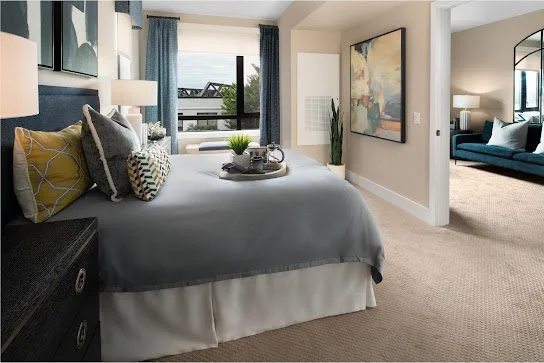Sleep-Related Habits to Help Seniors Sleep Better
Getting older often brings new challenges to a good night’s sleep. Even those who used to sleep soundly may find themselves waking up more during the night, feeling wide awake at 3 a.m., or struggling to fall asleep in the first place. These changes are common, but that doesn’t mean they have to be accepted without question.
Better sleep in senior living Portland often comes down to daily habits. A few simple tweaks in routine can lead to deeper rest, easier mornings, and more energy throughout the day.
Stick to a consistent schedule
Waking up and going to bed at the same time each day helps regulate your internal clock. Try to keep the routine steady even on weekends. A consistent rhythm helps train the body to know when it is time to rest and when it is time to wake.
Cut back on late-day caffeine
Even if that afternoon cup of coffee doesn’t seem to keep you up, caffeine stays in the system longer than most people think. Switch to herbal tea or decaf by mid-afternoon to give your body a better chance at winding down naturally.
Create a relaxing bedtime routine
Gentle rituals before bed can signal to your brain that the day is done. That might mean a warm bath, reading a few pages of a book, or listening to calming music. Keep lights soft and avoid screens during this time.
Limit screen time before bed
Phones, tablets, and even television can interfere with melatonin production due to the blue light they emit. Try shutting off screens at least an hour before bed. If you need a distraction, consider listening to an audiobook or gentle music instead.
Get natural light during the day
Spending time outdoors during the morning or early afternoon can help reinforce your body’s natural sleep-wake cycle. Even a short walk on senior apartments or sitting by a sunny window helps maintain a healthy circadian rhythm.
Watch what you eat and drink in the evening
Heavy meals or late-night snacks can disrupt sleep. Try to eat dinner at least two to three hours before bed, and limit alcohol, which can make sleep lighter and more fragmented.
Keep the sleep space calm and comfortable
Cool, quiet, and dark is the goal. Use blackout curtains if needed, and consider a white noise machine or fan to reduce outside sounds. Make sure your mattress and pillows offer the right support for your body’s needs.
Supportive communities in assisted living Portland, sleep-friendly routines are often encouraged as part of overall wellness. Staff may help residents wind down with quiet evening activities or by dimming lights at the right time.
